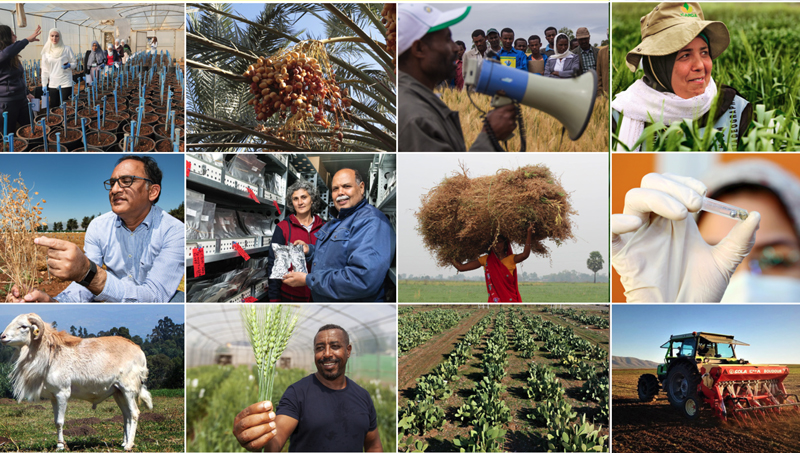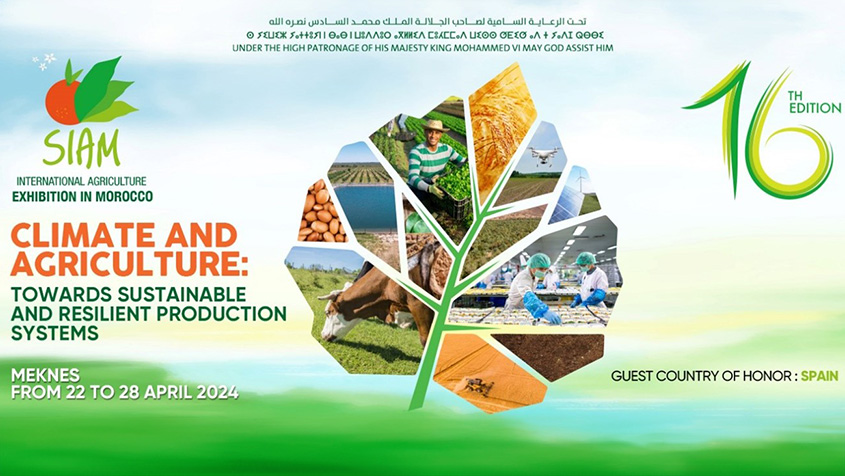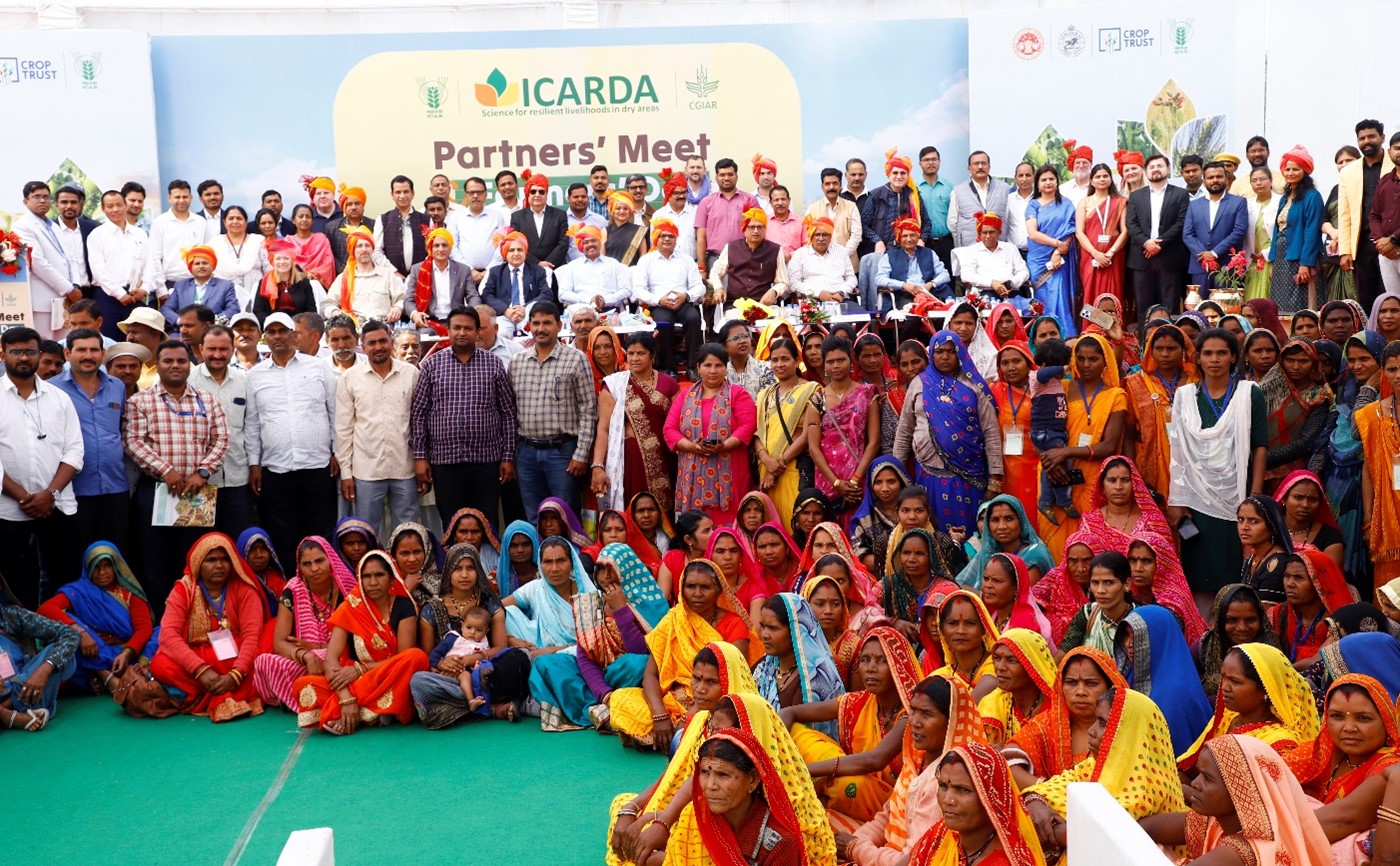ICARDA live at COP27
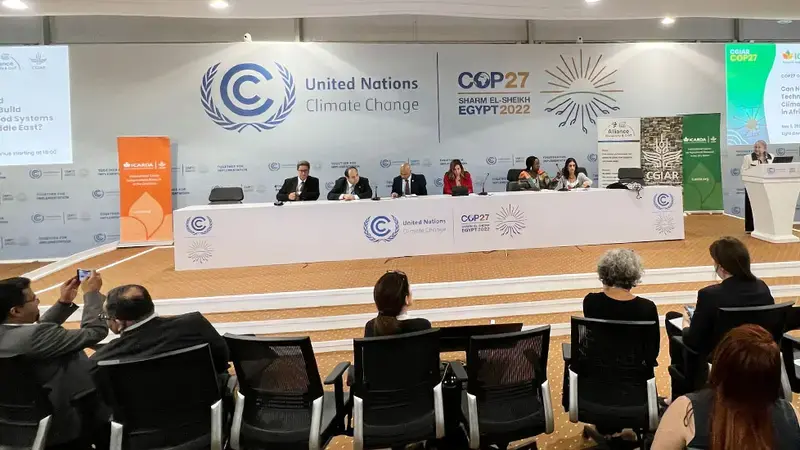
ICARDA and the CGIAR team attended COP27, hosted by The Egyptian Presidency in Sharm el-Sheikh, between 6-18 November 2022. This is the first COP that CGIAR centers have joined as one to present a unified front under the OneCGIAR ethos.
Read our daily Livestream of our activities as they happen
Of significance this year at COP27 was a marked prevalence of agri-food systems transformation in events and climate strategies presented at all levels and across the board. Given that last year's COP was the first time that agriculture was officially acknowledged and included in key pledges such as the methane pledge, this marks a significant pivot in climate change strategies, in which CGIAR can play a leading role through its research centers' combined innovation, expertise, trusted networks, and research portfolio. Key also was the interest solicited for CGIAR's agri-food systems innovations and technologies in bilateral meetings with government and private sector stakeholders throughout the conference.
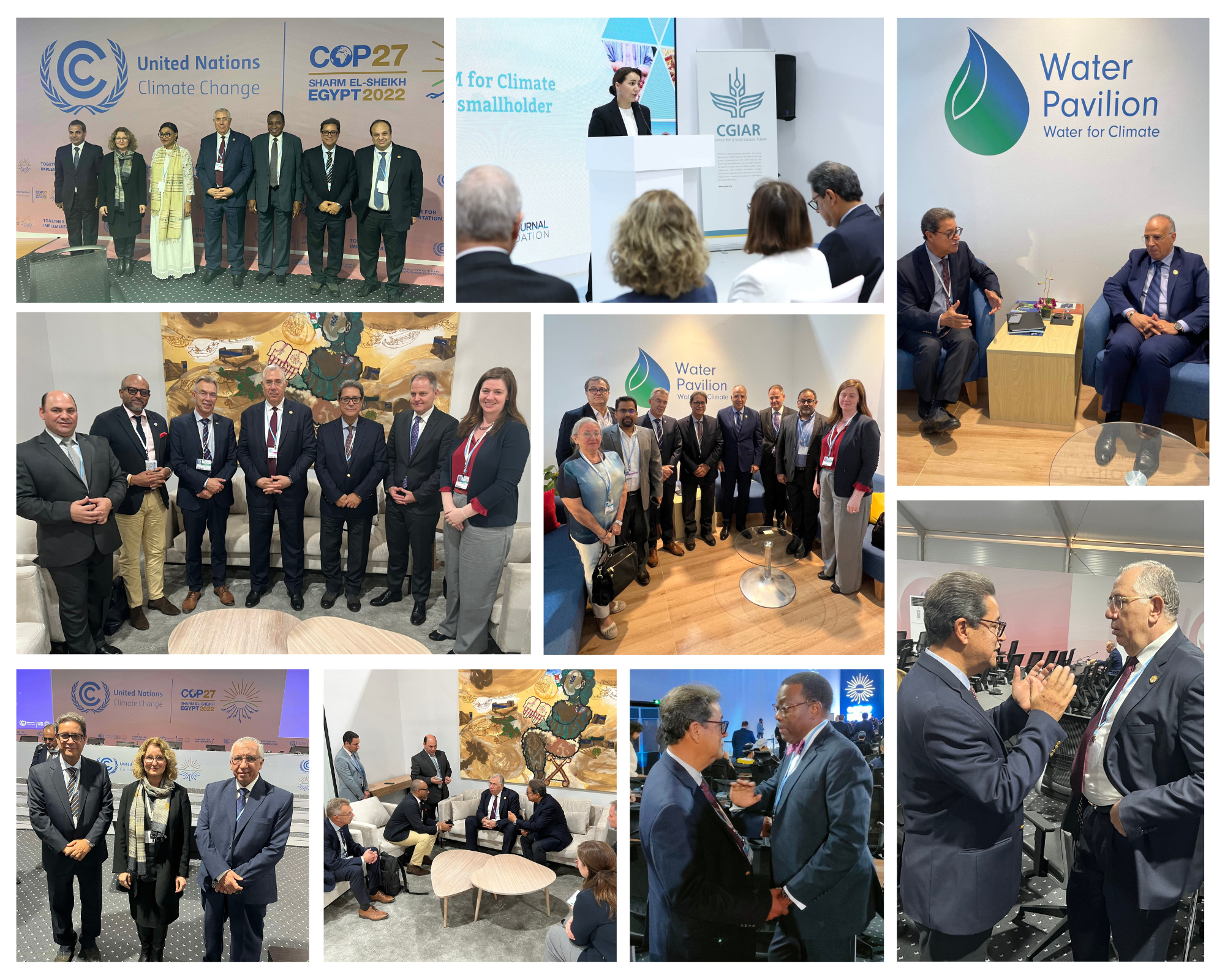
This year's COP theme was 'implementation,' a change in conversation from last year, where countries united to set goals and pledges. Implementation does not just focus on execution but also includes finance, capacity building, and solutions, and fits well with OneCGIAR's vision of greater integration for impact.
12 CGIAR centers collaborated at COP27 as a cohesive delegation within the UNFCCC COP process in order to more effectively raise the profile of its 2022 portfolio of 33 global initiatives designed to address specific settings of climate-change-related challenges across the globe.
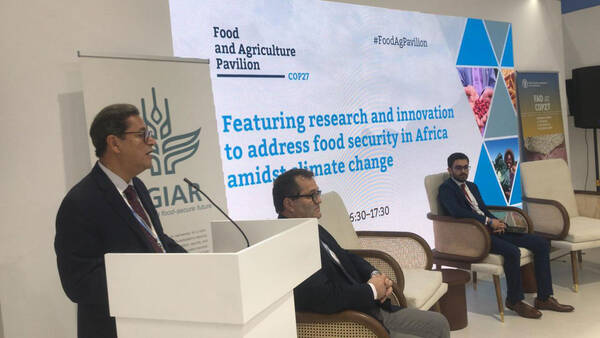
Under OneCGIAR, the ICARDA delegation and their speaking partners advocated for urgent global action to revolutionize 'business-as-usual' agri-food systems that are no longer fit for purpose, including in the dry regions. Under the intensifying climate crisis, yields are declining, land degradation and water scarcity are accelerating, and today's food systems continue to significantly contribute to greenhouse gases that perpetuate climate change.
ICARDA's Integrated Desert Farming Innovations were also well regarded as potential solutions to acute farming challenges in dry regions, where water scarcity and heat limit productive rural farming. Integrated Desert farming Innovations are combinations of individual evidence-based solutions delivered in tailored packages to target specific challenges and demands.
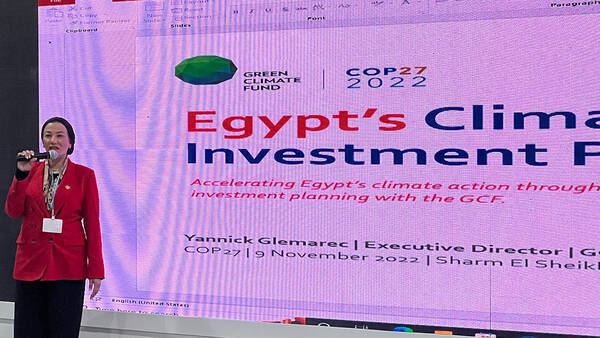
The ICARDA delegation, led by Mr. Aly Abousabaa, CGIAR CWANA Regional Director and ICARDA Director General, engaged in over 30 events and meetings with ministers and national, regional, and international organizations, presenting and discussing key issues, plans, and actions to respond to the climate challenges.
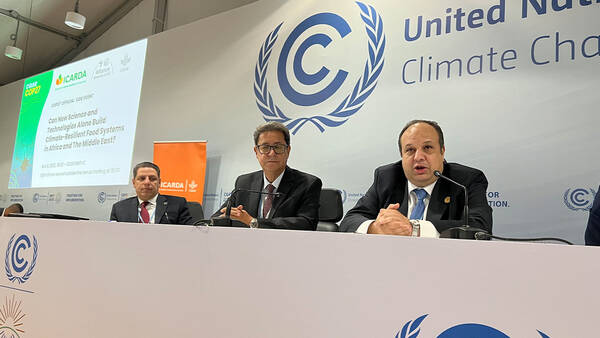
At the CGIAR-FAO-Rockefeller Food Pavilion, ICARDA hosted events that reflected on the complexity of integrated farming in the drylands and its impact on climate security. It also discussed the key elements of improving the productivity of drylands, especially capacity building and the inclusion of women farmers to make sure solutions are adopted, and the private sector to help drive affordable and appropriate technology.
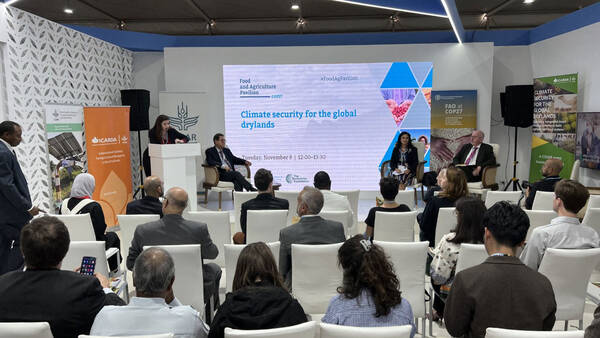
Together with the Global Crop Diversity Trust (Crop Trust), the event on genetic resources, led by ICARDA Lebanon Genebank Manager Dr. Mariana Yazbek, highlighted the genebank's role in offering a rich source for climate-smart plant genetic traits and highlighted the importance of conversation of our vulnerable technology given the modern-era of extreme weather events, water scarcity, and even farming itself that encroaches on natural habitats.
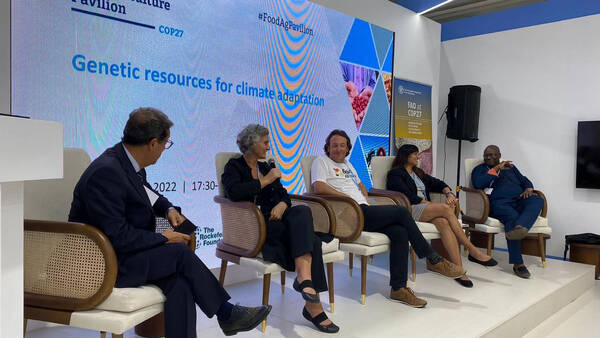
ICARDA also hosted an official UNFCCC side event together with the Alliance of Bioversity and CIAT, focusing on the key components that are often overlooked but vital for fully comprehensive and effective climate-resilient food systems, including enabling policies and financial incentives that drive the adoption of innovative approaches and technology, and consider farmer needs and demands from the start.
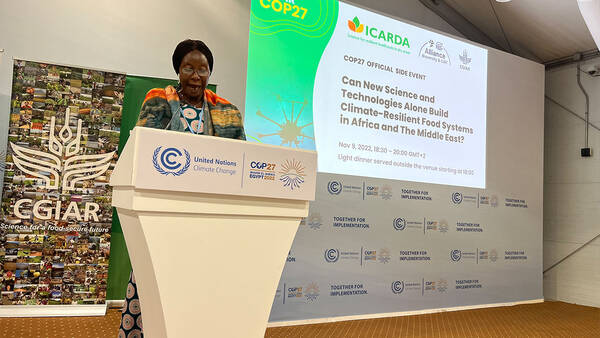
ICARDA's Integrated Desert Farming Innovations were well received at a number of events. Based on traditional farming approaches such as 'oasis farming,' in which desert farmers combine different farming techniques to address varied conditions, ICARDA has upgraded desert farming packages to include contemporary innovations such as renewable energy integration, cutting-edge water management techniques, climate-resilient crops, protected (greenhouse) agriculture, resilient livestock, and more.
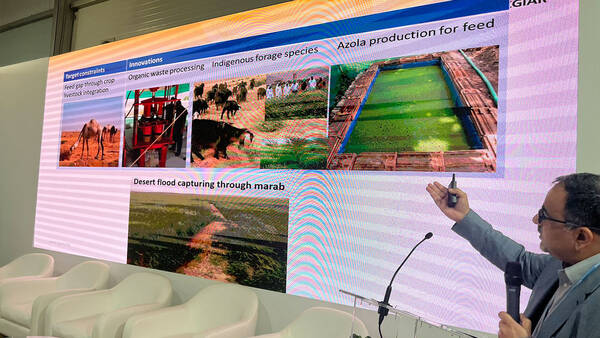
Digitalization of both research and agri-food system transformational tools now plays a vital role in CGIAR's initiatives. Yet adoption of such technologies by rural farmers remains a challenge due to costs, access, and trust in new techniques. Across ICARDA's work, and especially through its Integrated Desert Farming Innovation packages, capacity building through training, demonstrations, market access, and private sector partnerships plays a key role in getting technology to where it is needed most.
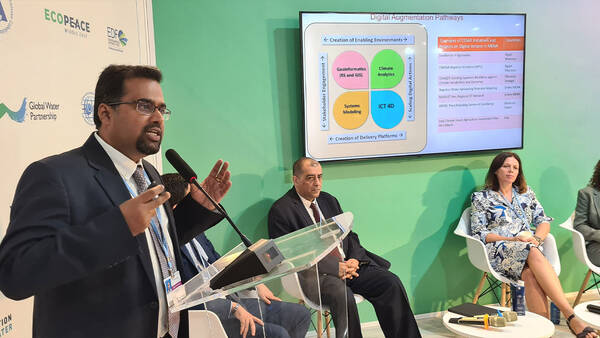
The ICARDA Delegation at COP27
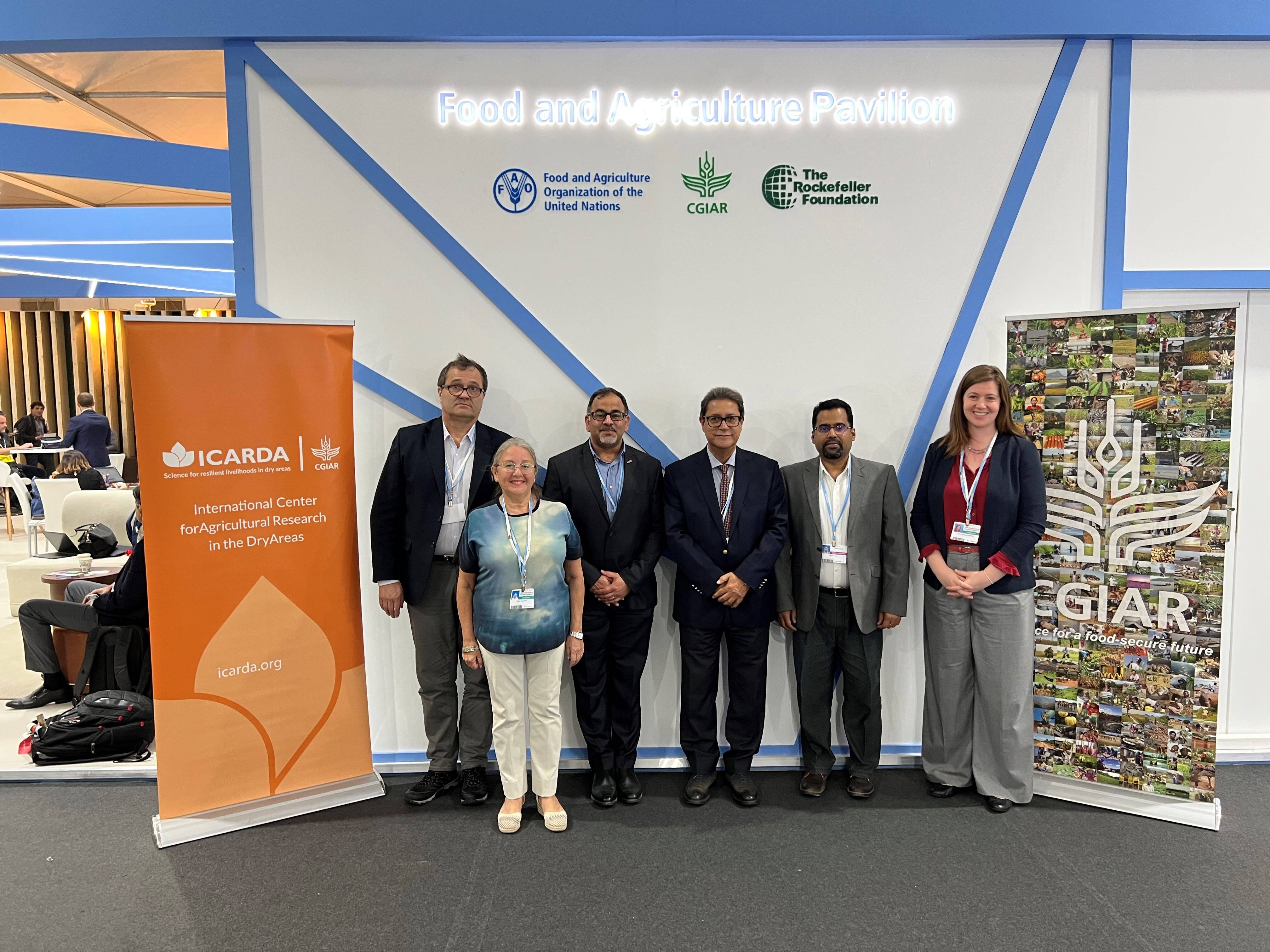
- Aly Abousabaa - ICARDA Director General and CGIAR CWANA Regional Director
- Roula Majdalani - ICARDA Climate Change Advisor
- Michael Baum - ICARDA Deputy Director General and Research Team Leader
- Vinay Nangia - ICARDA Soils, Water and Agronomy Research Team Leader
- Mariana Yazbek – ICARDA Genebank Manager
- Ajit Govind - ICARDA Senior Climate Scientist and Systems Modeler
- Rachid Moussadek - ICARDA-INRA Morocco Systems Cropping Agronomist Joint Researcher
- Mary Margaret McRae – ICARDA Head of Partnerships and Resource Mobilization
- James Pursey – ICARDA Communication Manager
Review ICARDA’s full COP27 agenda here.

